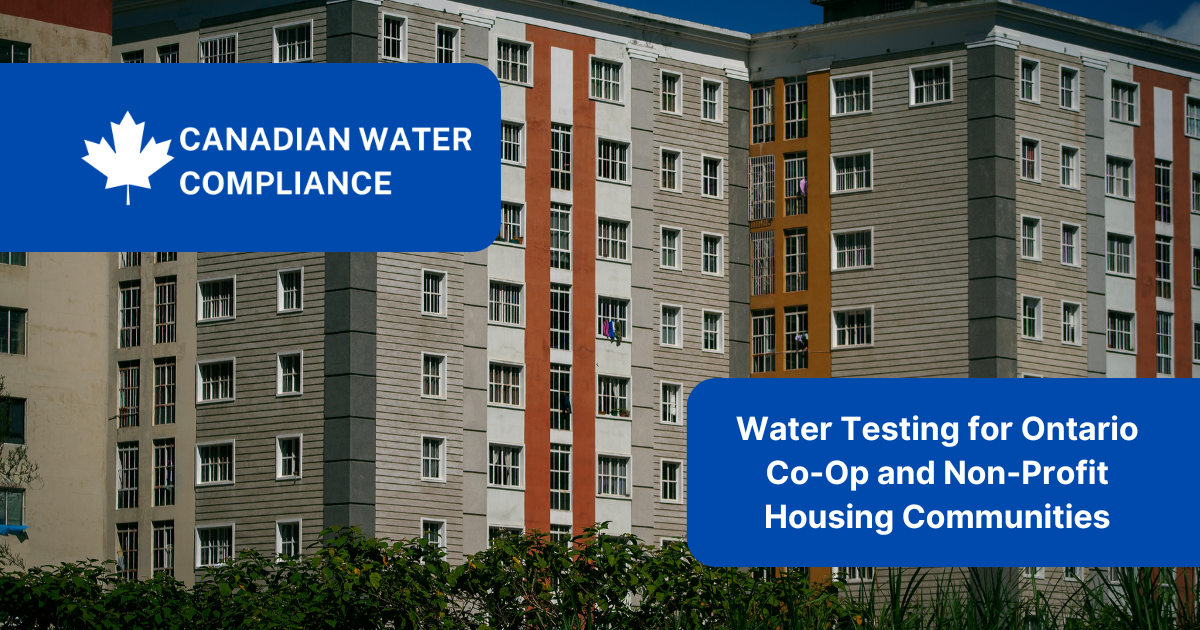
Written By: Canadian Water Compliance | On
Co-operative and non-profit housing communities play a vital role in providing affordable, community-oriented living across Ontario. Many of these housing complexes are located in rural or semi-rural areas, and some are not connected to municipal water supplies. In these cases, the property may rely on a private well, cistern, or other non-municipal water source, triggering important health and safety obligations.
If your housing community uses a private water source and provides water to multiple residential units, you may be operating a Small Drinking Water System (SDWS) under Ontario Regulation 319/08. This means you're legally required to test, monitor, and maintain water safety to protect residents and remain in compliance.
Safe drinking water is a basic human right, and any failure to test or treat water can put residents at risk—especially in communities with children, seniors, or immunocompromised individuals. Common concerns include:
Microbiological risks such as E. coli or Total Coliforms
Chemical contaminants like nitrates, sodium, lead, or arsenic
Aging plumbing systems that contribute to copper or iron buildup
Nearby agricultural runoff or septic system seepage
Water quality issues can cause illness, lead to boil water advisories, or result in legal liability if not addressed.
Under O. Reg. 319/08, your property may be classified as an SDWS if:
It provides water to the public (i.e., residents, staff, or visitors)
It uses a private well, cistern, or surface water source
It is not otherwise regulated under municipal waterworks
If classified as an SDWS, the property is required to:
Undergo a Site-Specific Risk Assessment (SSRA) from the local Public Health Unit
Conduct biweekly microbiological testing (E. coli and Total Coliforms)
Perform annual chemical testing for key parameters
Maintain logs of maintenance, disinfection, and corrective actions
Non-profit housing communities often face unique challenges, including:
Limited technical expertise for water system maintenance
Budget constraints that delay equipment upgrades or repairs
Aging infrastructure without clear documentation
Gaps in communication between management and residents regarding advisories or water system status
Without proper planning, these challenges can lead to compliance failures or unsafe living conditions.
We help co-op and non-profit housing operators stay compliant and protect their residents through:
Certified water testing and sampling services
System assessments and compliance reviews
Seasonal testing plans aligned with occupancy schedules
Logbook templates and documentation support for inspections
Emergency testing and support following failed results or complaints
Whether your community is a rural co-op of 10 units or a larger non-profit development with shared amenities, we make water safety simple, compliant, and transparent.